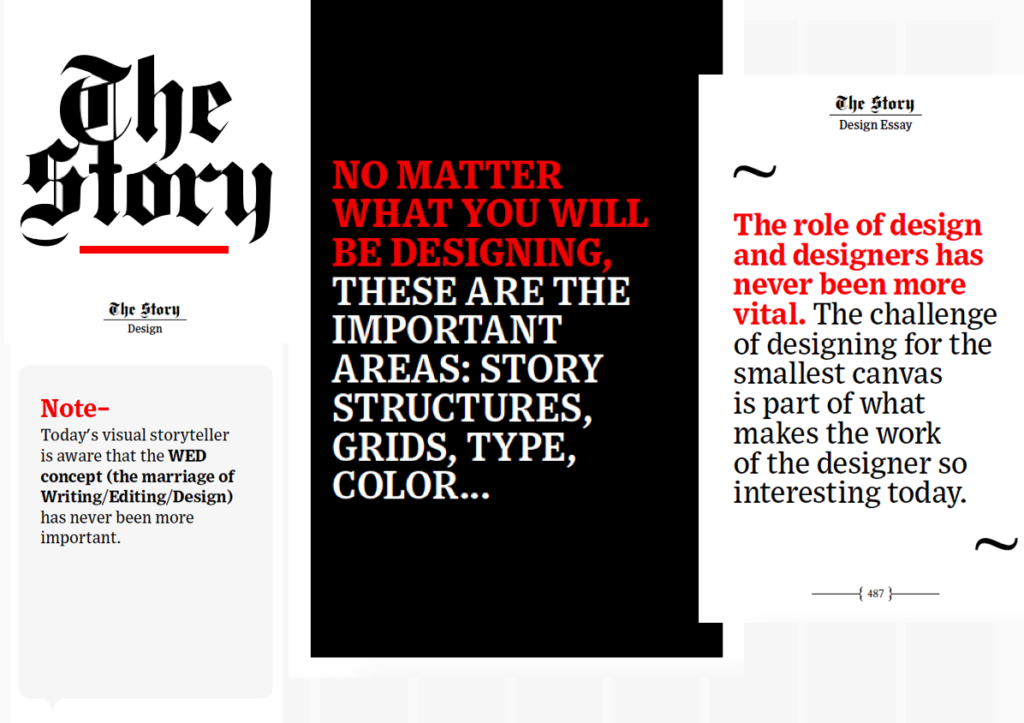Mobile storytelling is in its infancy. Progress and experimentation are slow when it comes how we tell stories to be consumed on the phone.
While researching for my book, The Story, it became obvious that in a majority of newsrooms globally the subject of mobile storytelling has not entered the room. Yet, when you ask the editors and journalists in those newsrooms where most people are consuming the information they produce, the answer is always the same: on their phones.
This is the turning point in our workshops, confession time, when the participants ADMIT—make that, CONFESS—that they, too, are consuming information constantly on the phone. Yet, they sit down to produce content that is print driven and NOT mobile friendly at all.
The BBC study
I am happy to have come upon this piece, which relates fascinating research on the creaion of story formats that do well with young audiences.
The BBC group is developing new story formats for news that are more effective than conventional video or article formats, according to the piece. “We think there might be better things,” writes Tristan Ferne, BBC Research & Development,
Indeed, there are better things and better ways of telling stories, in a more visual way, following linear patterns that engage readers, their brains, their eyes and their fingers.
“Maybe we’ll invent an industry disrupter. Maybe not. But we can learn about the evolving needs of our audiences, experiment with formats, inform the design of future systems and interfaces, and inspire people,” Ferne writes.
The BBC project is titled “Reinventing News Stories” project — testing with a series of prototypes that you can see in the piece.
What is this study about? Ferne describes the project this way:
We made 12 prototypes — a mix of working web pages, mockups and videos. The ideas ranged from playing atmospheric audio for a story, scrubbable videos, swiping through viewpoints, choosing your format, curations of stories, cinematic introductions and expandable explanations. Everything was designed for mobile, because that’s what everyone we spoke to used for online news.
We evaluated as we went, and developed the most promising ones further into new variations. We also tested the best prototypes with several different news stories to ensure it wasn’t just the content the users were drawn to. These are our four best prototypes.
An example of the prototypes tested

What the BBC team learned about 18–26 year olds and news
- They want to skim, but dig deeper when they’re interested
- They want to understand complex stories
- They want to read a story all in one place
- They want help forming opinions
- They want a choice of media to suit context
“We found that young people are trying to navigate a difficult path between information overload and FOMO (fear of missing out),” Ferne says.
More experimentation needed
I hope to link up with the BBC guys as I see many connections between what they are doing and my own work.
I had not read of any specific research in this area, and it is grand to see that the BBC is experimenting with formats. Here is my favorite of the ones shown in the piece:
It is referred to as the Incremental: This prototype breaks a news story into sections and gives you the option to consume each chunk of information as either video, short text, long text or skip it. It was the most preferred by the young people in the test!
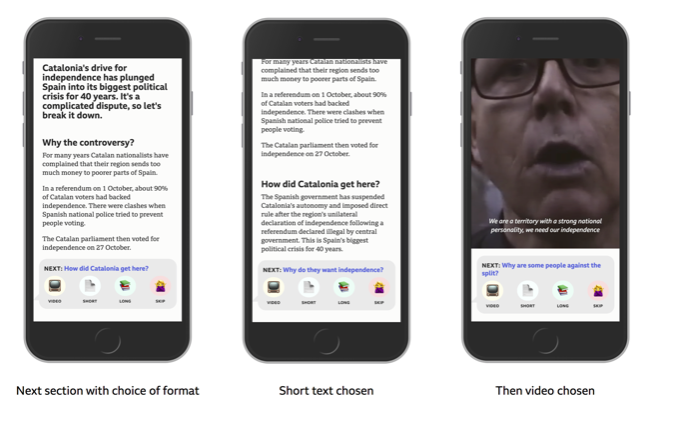
Read the entire article by Tristan Ferne here:
From Monocle Weekend
https://monocle.com/minute/2019/09/21/
THE INTERROGATOR / EDITION 30
Mario García
Editorial consultant Mario García has advised the most important newsrooms in the world on design – and how best adapt to a digital transition. More than 700 publications, from The Wall Street Journal to the South China Morning Post, have received his strategic steer. Other than being an adjunct professor at Columbia University’s School of Journalism, he also runs his own consultancy firm: García Media. Nowadays his speciality is how digital devices influence narrative structure and consumption; his latest book, The Story, was written specifically to be read on a phone. Here, though, he confesses to a few analogue pleasures.
What they are saying about The Story!
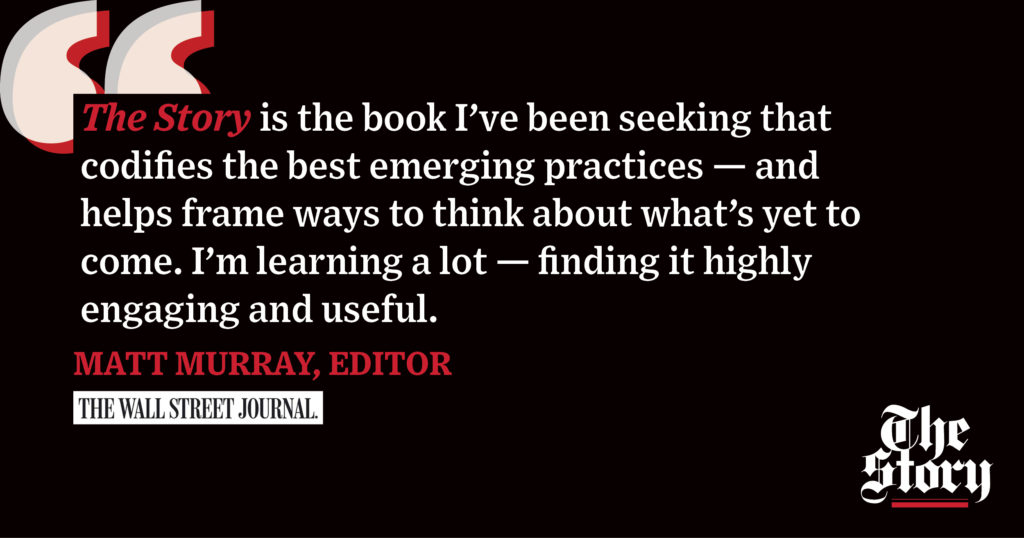
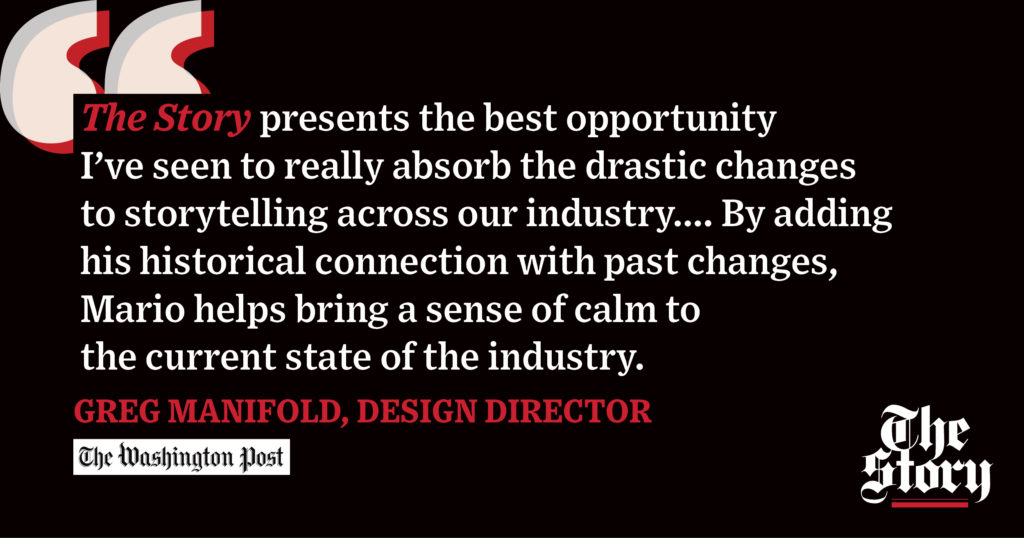
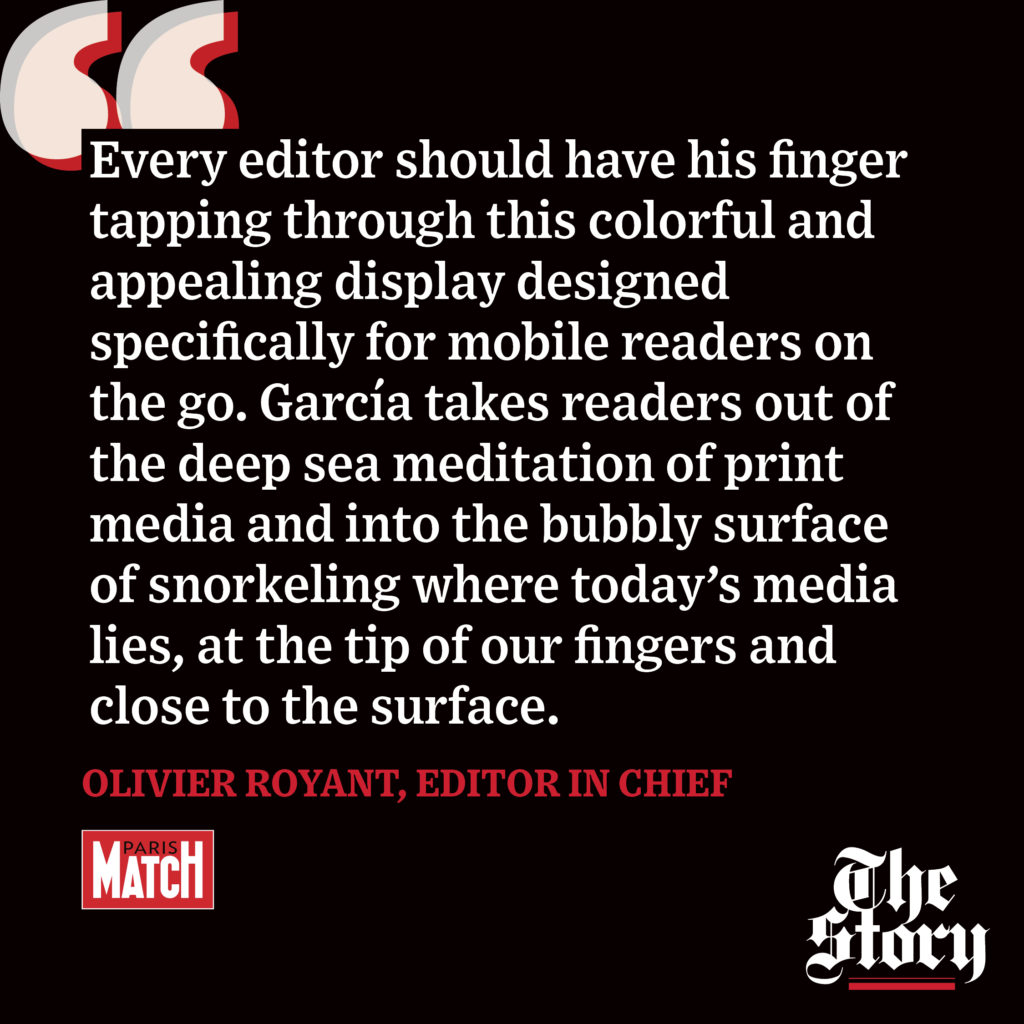
The Story is here!
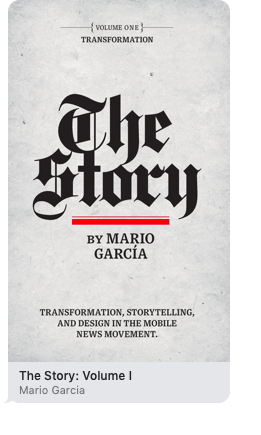
You can now download my new mobile storytelling book, The Story, from Apple Books at $6.99
This is Book 1 of a Trilogy! The other two books coming soon.
https://books.apple.com/us/book/the-story-volume-i/id1480169411
The newspaper remains the most powerful source of storytelling on the planet. But technology threatens its very existence. To survive, the Editor must transform, adapt, and manage the newsroom in a new way. Order The Story by Mario Garcia, chief strategist for the redesign of over 700 newspapers around the world.
My chat with in Monocle Radio
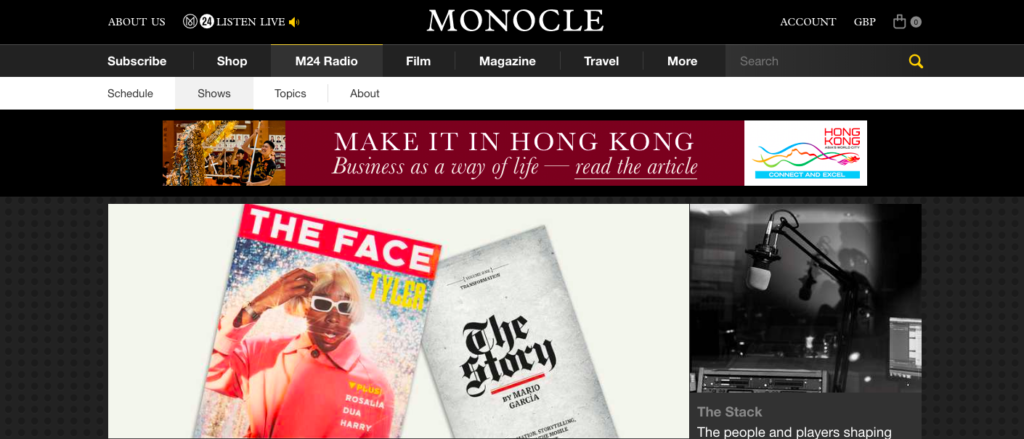
Listen to my chat in Monocle Radio’s The Stack: Latest episode‘The Face’ and ‘The Story’:We welcome the return of the print version of ‘The Face’ and talk to legendary newspaper designer Mario Garcia about his latest book, ‘The Story’.
https://monocle.com/radio/shows/the-stack/368/play/
My interview with CNN en Español
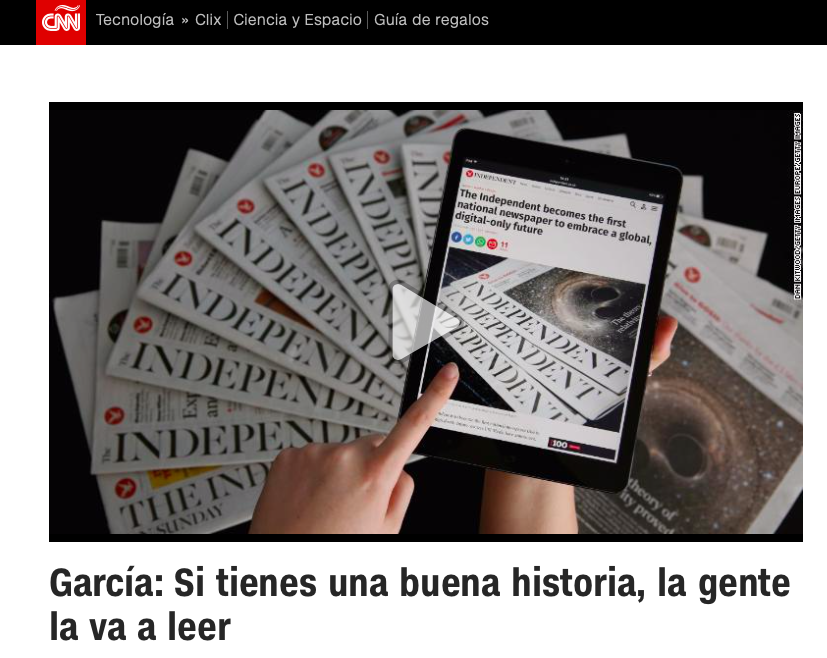
I was a guest in the program Encuentro, hosted by Guillermo Arduino daily at CNN en Español. The interview was about how we read on mobile devices and my introduction of my new mobile storytelling book, The Story, to a Spanish-language audience.
Mario’s speaking engagements
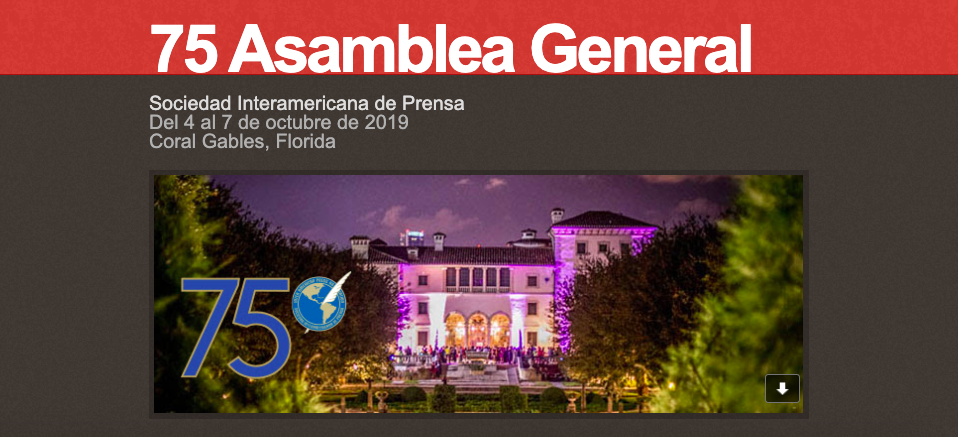
Presentation of The Story at the Sociedad Interamericana de Prensa (SIP) in Miami, as the organization celebrates its 75th anniversary serving the Latin American Press, Miami.
October 4, 2019

Keynote Luncheon Speech: Ad Club of Toronto, Newspaper Day
October 25, 2019

Keynote presentation: Business Information & Media Summit (BIMS).
November 12, 2019
Order print edition of The Story
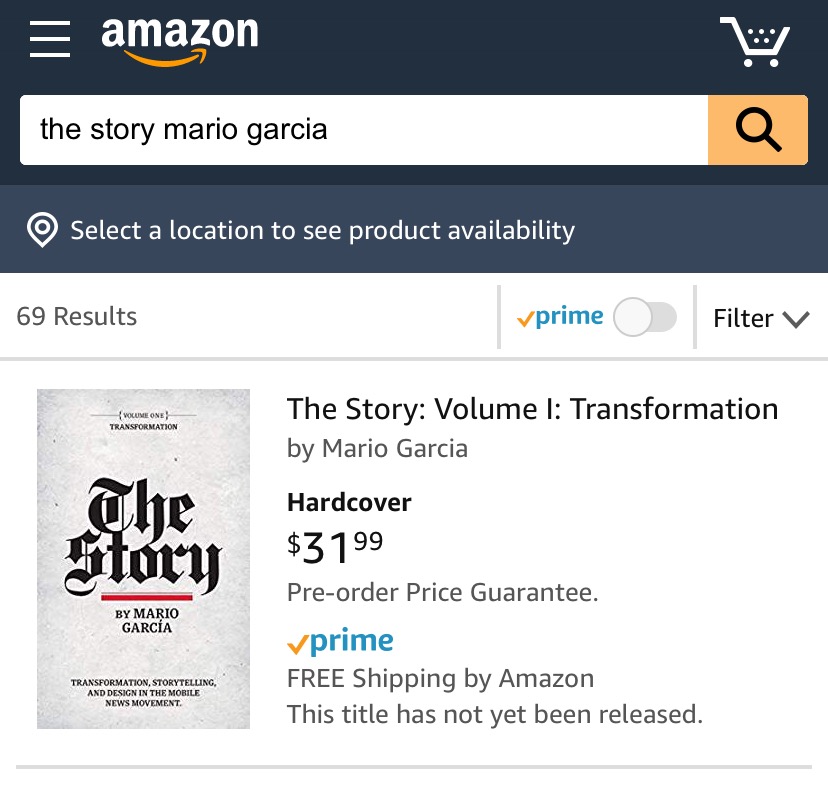
You can order the print edition of my new mobile storytelling book, The Story, from Amazon already here:
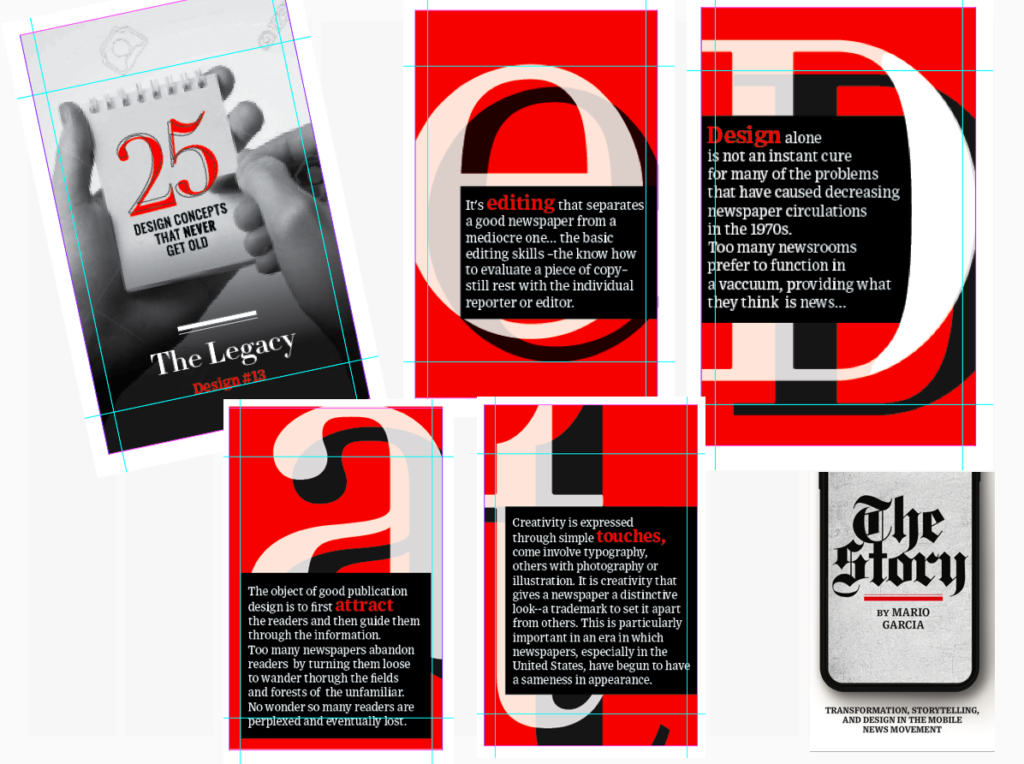

An interview of interest
http://www.itertranslations.com/blog/2019/3/11/fd60ybflpvlqrgrpdp5ida5rq0c3sp
TheMarioBlog post # 3120
